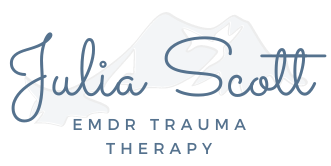What can EMDR help with?
EMDR can help resolve post-traumatic stress resulting from events such as:
- Past physical, sexual or emotional abuse
- Rape / assault
- Road traffic accidents
- Workplace accidents
- Robbery
- Having witnessed violence
- Natural disaster
- Surgical trauma
It can also help with difficulties such as the following:
- Panic attacks
- Sexual issues
- Phobias
- Stage fright / performance anxiety
- Repeating unwanted patterns in relationships
- Avoidance behaviours
When EMDR processing is not advisable
When processing distressing memories with EMDR, you may experience images, thoughts, emotions and physical sensations which feel quite intense at times. It is really important that you are able to stay present with the pain and discomfort so that you can fully process the memories so that they stay in the past.
If you have a background of severe abuse, neglect or abandonment, you may find it difficult to regulate your emotions and to trust people. If this is the case for you, it may be some time before you feel safe enough to tolerate the high levels of distress that may arise during or between EMDR sessions, especially if they have been locked away for some time. You will be taught some techniques for staying with emotions, observing them and gaining mastery over them. These are really helpful in themselves, and if you practise them regularly, they will give you some sense of control over your trauma symptoms. Once you are able to use these techniques effectively, you will be ready to move into the desensitising and reprocessing phase of the EMDR Protocol.
The processing phase of EMDR may not be suitable for people who:
- Have difficulty managing high levels of stress or anxiety
- Are taking Diazepam or other benzodiazapines
- Are actively abusing a substance
- Are actively self-harming
- Are currently in an abusive relationship
- Are diagnosed with a dissociative disorder
- Experience uncontrolled flashbacks
- Have a heart condition
- Are pregnant
However, these conditions are not absolutes, so please do get in touch to book an introductory session (cost £30) to discuss your needs and current circumstances.

